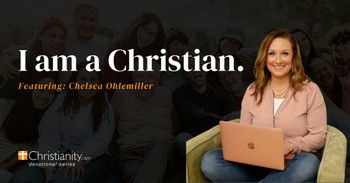On December 11th, a suicide bomber killed at least 25 worshippers and injured 49 more during Sunday Mass at St. Peter’s Coptic Church in Cairo.
The attack was only the latest in a series of outrages committed against Egypt’s native Christian community. Less than three weeks ago, I told you on BreakPoint about a series of attacks in Minya, which is 150 miles south of the Egyptian capital.
Those attacks were described as part of a “disturbing wave of [Islamist] radicalism” that has emerged after the overthrow of the Muslim Brotherhood in 2013.
This time, it was ISIS who claimed responsibility for the atrocity which was, they said, part of its “war on polytheism,” the Islamic epithet for Christian belief in the Trinity. ISIS has promised more of the same.
In a masterpiece of obtuseness—or is it just invincible ignorance?—the New York Times said that the attack suggested that ISIS “was prepared to single out Egyptian Christians much as it did minority Shiites in countries like Iraq and Syria.”
Uh… well, notice who was missing from the Times’ list of targets—Iraqi and Syrian Christians, not to mention Yazidis and other religious minorities.
For its part, the Egyptian government was quick to focus attention on what it saw as the real outrage: criticism by groups such as Amnesty International and Human Rights Watch for its failure to protect Egyptian Christians from these kinds of attacks.
A Foreign Ministry spokesman accused human rights groups of demonstrating an “unacceptable tolerance to terrorism.”
Now if you’re thinking “Wait . . . what?”—well, welcome to the world of our Egyptian brethren. Copts have been, at best, second-class citizens since the 1952 coup that created the modern Egyptian state. Repression, discrimination, and violence have all been part and parcel of their existence.
While the Egyptian government obviously didn’t attack the worshippers at St. Peter’s or attack Christians in Minya, the Egyptian government is largely indifferent to the fate of its Christian citizens.
Actually, it’s even worse than that. Mistreating Copts was the way that Egypt’s rulers, including the present one, have burnished their Islamic identity. And, until recently, virtually no one, especially in the West, said “boo!” about it. The sad truth is that Copts had to start dying in significant numbers for anyone to take notice, and that “anyone” includes their brethren in the West.
That was then, so what about now? Historically, the treatment of Christian minorities, in Egypt or elsewhere, has never figured prominently in American foreign policy. This is a bipartisan failing.
And if it’s going to change, we must take the lead. The outgoing administration was rightly criticized by Christians for its failure to address the issue. The incoming one is thought to be more receptive to our concerns. The fate of our brethren in places like Egypt and the rest of the Middle East is a good place to test our hypothesis.
In the aftermath of the American election, there were reports that the Egyptian government was gratified by the results, believing that the new administration would provide Egypt more assistance in its fight against the Muslim Brotherhood and ISIS. Mind you, Egypt already receives nearly $1.5 billion in military and economic aid from the U. S.
And that means this: If the Trump administration says, “You need to do more to protect Coptic Christians,” the Egyptian government will have to listen.
Never forget, our first appeal on behalf of our Coptic brethren needs to be made on our knees. And after you pray, let President-elect Trump know how you feel.
How? I hear he checks Facebook and Twitter. And pretty soon, he’ll have a White House address.
BreakPoint is a Christian worldview ministry that seeks to build and resource a movement of Christians committed to living and defending Christian worldview in all areas of life. Begun by Chuck Colson in 1991 as a daily radio broadcast, BreakPoint provides a Christian perspective on today’s news and trends via radio, interactive media, and print. Today BreakPoint commentaries, co-hosted by Eric Metaxas and John Stonestreet, air daily on more than 1,200 outlets with an estimated weekly listening audience of eight million people. Feel free to contact us at BreakPoint.org where you can read and search answers to common questions.
John Stonestreet, the host of The Point, a daily national radio program, provides thought-provoking commentaries on current events and life issues from a biblical worldview. John holds degrees from Trinity Evangelical Divinity School (IL) and Bryan College (TN), and is the co-author of Making Sense of Your World: A Biblical Worldview.
Publication date: December 22, 2016



